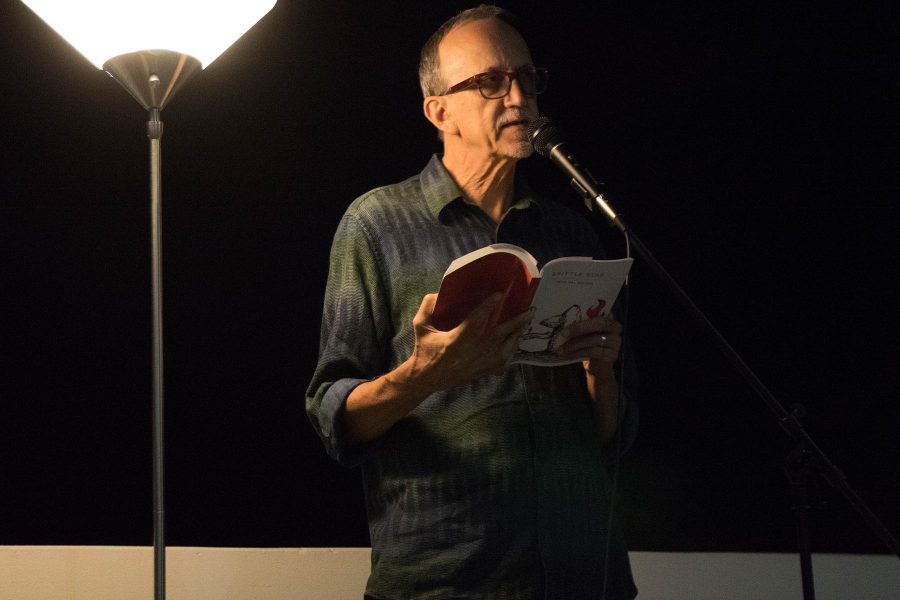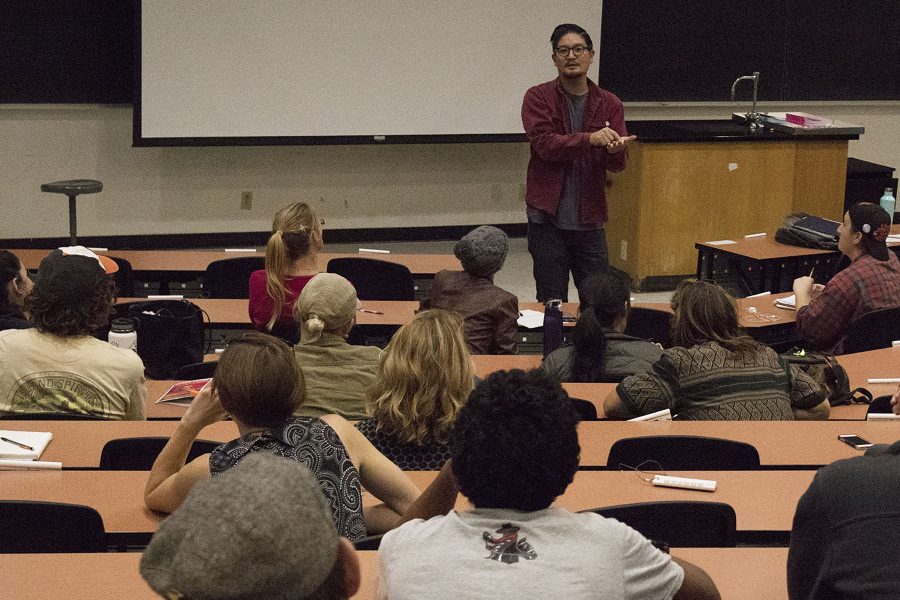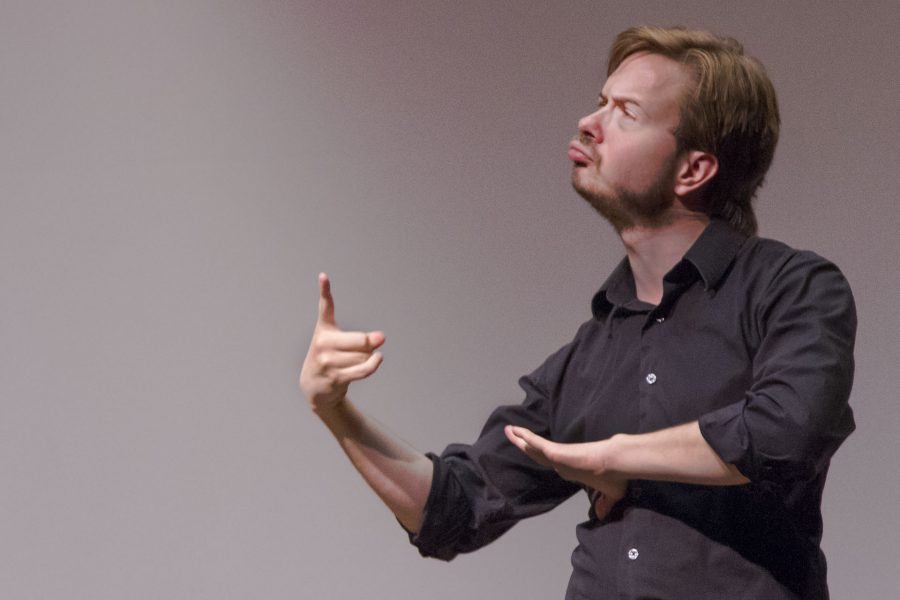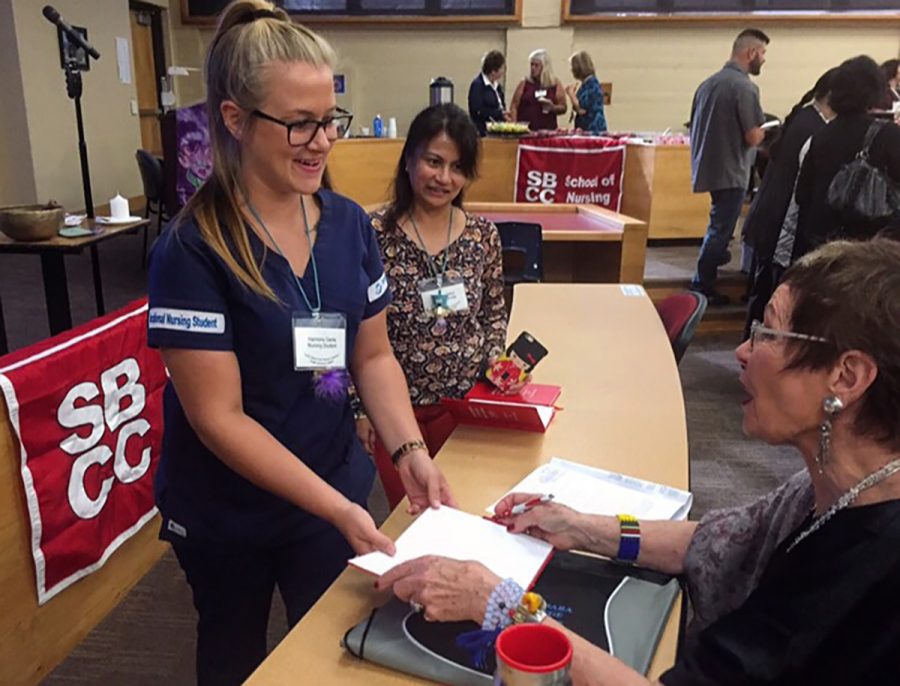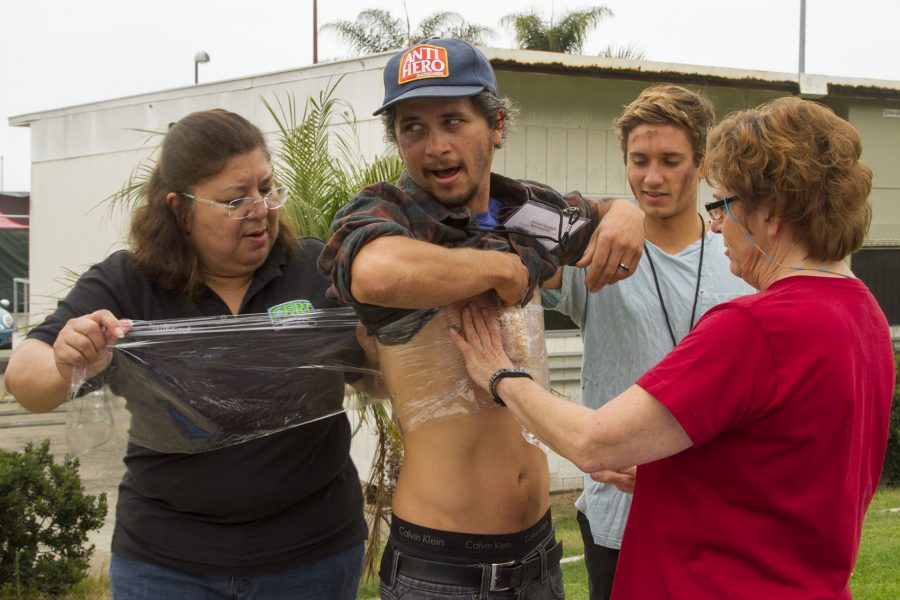It is often said that “hate is a strong word.”
Despite this, we live in a world where hate is a constant in many people’s lives. It affects what we do, how we look at ourselves and what opportunities are given to us.
Five different stories on the word hate were shared during the panel discussion titled “Let’s Talk: A Conversation About Hate,” hosted by Sigma Chi Eta Wednesday in the Communications Lab.
“Our hope is that through the telling of stories tonight, we can build empathy,” said Sarah Hock, Sigma Chi Eta faculty adviser and associate communication professor. “We can learn a little more about one another.”
Dr. Thomas Carrasco, American ethnic studies professor, explained how hate is connected to race, class and gender. He believes that having the knowledge of why this oppression is happening gives a lot of power to the oppressed.
Carrasco describes his upbringing as a racialized Chicano in Oxnard as a constant feeling of always taking something that wasn’t his. Carrasco argued that there has to be a realization that everyone is in this together, and that compassion and knowledge plays an important role in fighting hate.
“I should believe that all human beings are equal, nobody is better than anybody else,” Carrasco said. “Difference is good. It’s okay to be different.”
Leslie Marin, sociology and criminology major, shared her story of being a first-generation undocumented student at City College. Growing up, Marin was discouraged to take honors classes because English was her second language.
“You start letting them define who you are,’’ Marin said. ‘‘You start to believe what they are saying.”
A student with a similar story was Basir Nomair, a UCSB biology major from Afghanistan. He felt that he was constantly being blamed for things he had not done. This caused him to no longer want to attend school. Today, he feels as if he has to fight a prejudice before even entering a conversation with someone.
“It is like fighting a battle you’re already losing,” Nomair said.
In the modern world, there is a whole new version of racism that is very different from racism in a traditional sense. Dr. Carrie Hutchinson, communication professor, said that racist terminology and blatant racist jokes are no longer considered acceptable, but instead oppression is seen in systems.
“When we break it down we see that from a very young age that the deck is stacked against certain members of our society,” Hutchinson said.
Engineering major Mikais Zekele shared his positive experience when coming to City College. He brings up how important it is for a professor to call him by his name.
“I’ve had teachers in my life not saying my name, because they don’t want to bother learning how to pronounce it,” Zekele said.
The panelist participants expressed importance in gathering knowledge, being open, listening and taking action to work against hate and discrimination.
Correction: April 21, 2017
A previous version of this story erroneously stated that Dr. Carrie Hutchinson was an assistant professor of communication. This updated version states that she is in fact a communication professor.



